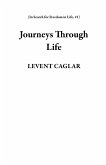This volume considers the two most important philosophers of the modern age. Today, the philosophies of Marx and Heidegger are still extremely relevant-provided one adapts them to the current socio-historical context and adjusts each to the implicit criticisms of the other-as indicated in this book. In particular, Marx countered the ideology of individualism by analyzing social structures and interpersonal interactions at different units of analysis than the individual person. Heidegger also questioned the traditional ontology of natural objects with innate attributes by proposing dynamic interactive processes of beings in their ecological context. When the author attended Northwestern University, it had the only American department of philosophy that encouraged the study of European philosophy. He also conducted the research for this doctoral dissertation during three years in Germany: at Heidelberg, where Heidegger's work was continued, and at Frankfurt, where critical theory extended Marx' thinking. Recently, the author returned to the confrontation of Marx and Heidegger, illustrated with the explorations of electronic music. This brief essay is appended to the book to show how its themes have persisted and matured over 50 years. During his intervening academic career, the author applied conceptual and methodological perspectives from Marx and Heidegger to the theory of CSCL (computer-supported collaborative learning), developing a theory of group cognition.
Dieser Download kann aus rechtlichen Gründen nur mit Rechnungsadresse in A, B, CY, CZ, D, DK, EW, E, FIN, F, GR, H, IRL, I, LT, L, LR, M, NL, PL, P, R, S, SLO, SK ausgeliefert werden.









